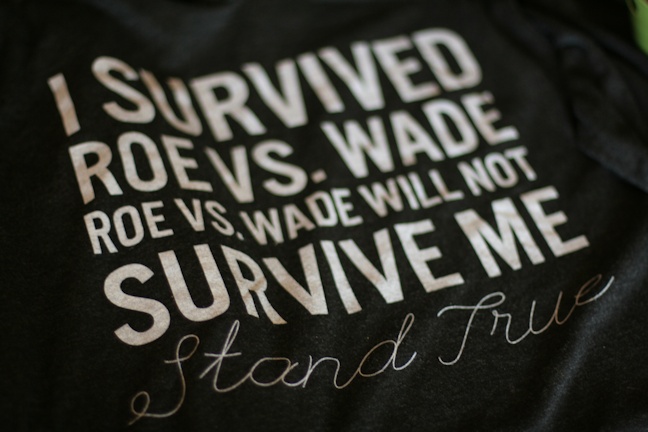Now that the presidential election has made overturning Roe v. Wade a very real possibility in the not-too-distant future, abortion advocates are shifting their focus to sowing discontent about the possibility, in the hopes that making a world without Roe sound outrageous and unthinkable will intimidate judges and politicians away from it.
To that end, they’ve seized upon a new Quinnipiac University poll supposedly showing that most of the public not only sides with abortion, but strongly wants Roe to stand. In response to the question, “In general, do you agree or disagree with the 1973 Roe v. Wade Supreme Court decision that established a woman’s right to an abortion?” 67% of respondents agreed and just 30% disagreed. Further:
American voter opinions on abortion are:
– 26 percent say it should be legal in all cases;
– 38 percent say it should be legal in most cases;
– 22 percent say it should be illegal in most cases;
– 10 percent say it should be illegal in all cases.
For Supreme Court nominees, Trump should consider only a nominee’s qualifications, 51 percent of voters say, while 40 percent say he also should consider the nominee’s opinions on issues such as abortion. Those who want a nominee’s opinions considered say 51 – 43 percent that Trump should not nominate Supreme Court justices who will vote to restrict abortion rights.
It sounds bad for the pro-life cause, but we need to keep some important caveats in mind.
First, Quinnipiac’s result on abortion itself, 64% generally for and 32% generally against, is a dramatic outlier in abortion polling, calling into question the rest of this poll’s findings. Two decades’ worth of polling data from Gallup, 1995 through 2015, has consistently found that at least 54% of Americans want abortion limited to few or no circumstances. Further, Marist Institute polls commissioned by the Knights of Columbus (KoC is pro-life, but Marist is a respected independent group) in 2008, 2014, 2015, and 2016 consistently found that between 56% and 59% want to ban either all abortions or limit them to rape, incest, and life of the mother.
Second, we just had a presidential election that pollsters got epically wrong, so it’s a bit rich that we’re expected to turn around and take another poll as authoritative as if November 8, 2016, never happened.
Besides, what’s an election if not the ultimate poll, the most comprehensive referendum of the public’s priorities? Donald Trump and House and Senate candidates explicitly campaigned on all of these questions. Voters knew their vote was a vote for a pro-life platform, overturning Roe, and pro-life judges—and they said yes. Sure, there were any number of other issues that took precedence for voters on either side, but the fact remains that the electorate deemed Trump’s abortion positions acceptable.
Third, it is true that polls generally find the public more favorable to Roe than they are to the broader subject of abortion. But why is that? Because Roe has earned some sort of sacrosanct status akin to the Bill of Rights? Hardly.
The Roe that respondents embrace in polls like this isn’t the real, historical Roe v. Wade, the one that not even abortion-friendly scholars can justify because of its legal, factual, and historical bankruptcy, the one that effectively protects abortion throughout all of pregnancy. They’re embracing a mythological version of Roe decades of media lies have conditioned them to believe in—one that only protects early-term abortions or abortions for medical emergencies, one necessary to save women from dying in (also-mythical) back alleys, and one as Americans they feel compelled to support as an outgrowth of the Constitution’s (nonexistent) right to privacy.
The media reinforcing ignorance of Roe’s actual characteristics—and then citing the fruits of their efforts as evidence against pro-lifers—has been a known issue for years. As David Andrusko of National Right to Life News explained in 2015, covering a Pew report:
#1 “More than six-in-ten (63%) U.S. adults say they would not like to see the Supreme Court completely overturn Roe v. Wade, while about three-in-ten (29%) want to see the ruling overturned. These figures have remained relatively stable for more than 20 years.“ [To be clear, this particular statement actually references polling done in early 2013.]
To begin with what is it that the respondent is told to comment on? “In 1973, the Roe versus Wade decision established a woman’s constitutional right to an abortion, at least in the first three months of pregnancy. Would you like to see the Supreme Court completely overturn its Roe versus Wade decision, or not?”
40 years after Roe is handed down, we had a major research organization characterizing Roe’s holding of virtual abortion on demand “as established a woman’s constitutional right to an abortion, at least in the first three months of pregnancy.” Although that canard should have been laid to rest at least a decade, if not more, ago, alas, it hasn’t. What would the response be if the question were asked in a fashion that represented Roe fairly?
So, if you radically underreport what Roe (and its companion case, Doe v. Bolton) concluded, it allows Michael Dimock, director of the Pew Research Center for the People and the Press, to say that it is uncommon to see so little change in attitudes on a controversial issue.
There’s one final reason pro-life officeholders shouldn’t fear a political backlash from overturning Roe: if and when it happens, the American people will see for themselves that the results won’t include women suddenly becoming helpless in the face of medical emergencies or thrust into back alleys.
Even better, once the public sees that the sky didn’t fall, they’ll start to wonder which of the Chicken Little abortion lobby’s other warnings have been nothing more than fear mongering.







